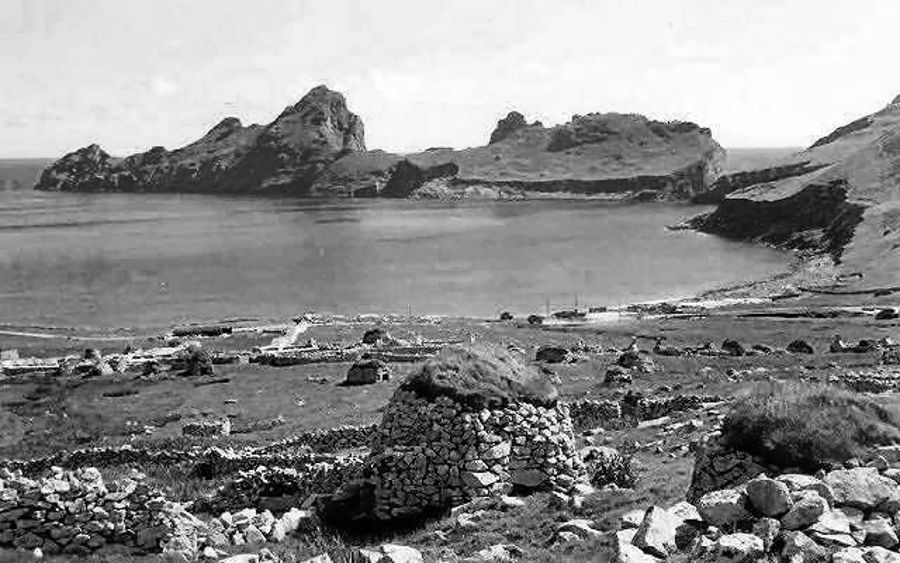Bad Science and worse soundbytes

From Phlogiston to methane masks for cows
PDF Version
Due to a bizarre infatuation with highly implausible narratives, the human race has historically adopted modes of thought which have since been proven to be highly flawed. With each paradigm shift, various universal constants are offered up by magi, hierophants and more recently advocates of 'Scientism'. These directives inhabit the opposite end of the spectrum from those classified by Arthur Schopenhauer. They haven't been ridiculed or violently opposed yet somehow they become accepted as self evident.
In the article Apparatchiks, ideologues and the meek historical analysis reveals certain agendas being delivered during the shift from pagan belief structures to monotheism. With the global decline in spiritual adherence, less evangelical authorities compete in the eternal battle for the hearts and minds of the people.

Today various medical conditions are treated with pharmacology and clinical disciplines. In times past the technology of the day was considered invaluable in the treatment of these conditions. However, we now perceive many of the methods employed to be highly questionable. In the 14th century, someone suffering from daily fits of ill tempered behaviour could potentially be diagnosed as suffering from some form of demonic possession. As such a standard course of leeching may not suffice and to effectively combat the defacto possession, trepanning may be the only viable treatment vector. Today, many healthcare professionals would recognise the chronology of the episodes and diagnose the patient as suffering from a blood sugar imbalance. It seems unlikely that exsanguination and / or having a hole drilled in their head are procedures likely to be of much practical benefit to a diabetic. Were anyone to suggest to a 14th century physician that their methods were not only unsuitable but in fact, highly counter productive, they would potentially be stigmatised by the local community, or even excommunicated by the church as a heretic.

In the article High octane emotional energy, we covered the highly flawed 1970's theory of peak oil. Today we see this hysteria represented in the contentious issue of 'Global warming'. It's the exact same narrative having been walked through the 'Eco friendly' 80s, the 'Green' 90s and the 'Low carbon footprint' tropes of the early 21st Century. These narratives are not entirely without basis and certainly do represent issues which humanity needs to be not only aware of, but actively challenging. Nonetheless the environmental bandwagon has been subjected to a concerted and sustained culture of 'pimp my ride'. The mentality exhibited by contemporary proponents of eco fearmongering is in no way different to the blinkered attitudes of those who denied the value of biodegradable packaging. They are simply at opposite ends of the ideological spectrum. An ideology which has been hijacked for political and commercial reasons.
One of the more controversial faces of ecological tub thumping is represented by the 'over population' narrative. It's refreshingly simple in terms of not representing an elaborate conceptual framework. Basically there are too many people on earth and we need to reduce population growth or we'll run out of everything we need. As usual it's an attractive concept in terms of superficial rationale. However, as soon as this theory is exposed to robust scrutiny, it falls to pieces in much the same way as the universally accepted Phlogiston theory did.

Perhaps one of the most stringent controls on immigration is seen being practiced by the Australian government. The justification of accepting skills shortage based applicants is attributed to the recent formation of the nation. The mentality that pervades is one of;
Well we need to be careful who we let in, because the country's full.
Looking at a population density map of Australia reveals this mentality to be based on precisely zero facts. It's the least populated continent on the planet and there are more sheep there than humans. Various qualifiers are proffered to ameliorate this quite obvious truth;
Nobody can live in the outback, it's too wild. Without amenities nobody can survive the heat. There's no way to make a living in the desert
Quite clearly these reasons are highly convenient. The evidence clearly indicates however, that there's actually more than enough room for new immigrants in Australia. However examining how most Australians live reveals a potentially different reason for these opinions. As covered in High octane emotional energy, many researchers agree that what most humans want is to be enjoying the outdoors with their friends and family. With the vast majority of the population living within easy reach of the coast, it could be argued that Australian society has achieved this goal better than any other nation. Sporting more hours of sunshine that most other countries, Australian lifestyle is synonymous with a widespread love of the outdoors. Consequently xenophobia finds a fertile ground in the minds of people who don't want an influx of other cultures threatening their little slice of Utopia. Ask the average Ozzy why their country is so difficult to get into and they'll probably say it used to be about having to have a work permit but now;
It's probably something to do with Covid

Many other nations reflect a similarly exclusive mentality in regards to immigration. One of the more controversial is Israel which has come under criticism for an enduring assertion that their policies must always facilitate a Jewish country inhabited by Jewish people. A great many of Israels population are not devotees of Judaism. Nonetheless the policy of no separation of church and state persists. Somehow the concept of Israel representing a Jewish homeland, becomes less simplistic when extended to displaced Ethiopian or Yemeni Jews. Ask the average citizen of Tel Aviv or Jerusalem why their country is so difficult to get into and they'll probably say it's something to do with the threat of terrorism from the Arab enemies of the state.
In both these cases, opinions are formed in media lead societies which have little or no bearing on reality. They basically develop from manufactured narratives presented via the popular media. Intangible straw-man arguments which seek to distract from the somewhat inelegant truth that the populations perception of immigration can be a highly awkward subject for any nation state.
The science of over population is primarily based on economic factors. This in itself is a major indicator that even using the word 'science' is inappropriate. Given the massively manipulated nature of current global economies, the idea that data mined from economic indicators is automatically valid, is quite seriously misplaced.

Some decades ago, the ratio of 7:84 was popularised by a Scottish theatrical group. In essence the point was quite accessible: 7 percent of the Earths population own 84 percent of the wealth. Most would agree that this ratio represents a fairly noticeable disparity. Exactly how to reconcile such a ratio with the supposed looming threat of over population, is not immediately obvious. The first point of order should be one of identity. The people and or organisations advocating for a downturn in global population probably have some form of agenda beyond a noble desire for a global Utopia. Unsurprisingly the majority of those promoting a reduction in global population are members of the 7 percent with the wealth, as opposed to the 84 percent without. The motivation could generally be most easily interpreted as being based on the retention of said wealth. In other words, those who have got the money don't want to be giving it away anytime soon.
What was pitched as a virtue signalling claim of;
Something must be done to save the human race
is ignobly revealed to actually be much more in line with;
Survival of the fittest
The concept of the strongest surviving profoundly negative circumstances is not new. The reality of this axiom is not in line with the agendas being pursued by the advocates of global population reduction. The fittest who survived the cataclysms of the past were not the wealthy. They were hunter gatherers with extremely low levels of civilisation. That is if we're to discount the numerous legends of knowledge transfers conducted by technologically advanced races in the aftermath of global upheaval. In any event the existence of Vira Cocha or Oannis does nothing to invalidate the opinion that the greatest numbers of survivors were from primitive cultures. So when contemporary members of an affluent society espouse the benefits of population control, at no point are they advocating their own removal from the population. It's all about other people, far away, somewhere in the third world and how they need to practice planned parenthood better. For the sake of everyone on Earth.

The actual science of population density flies in the face of the depopulation narrative. There are numerous examples which completely contradict the foundations of the argument. For example;
- Only 25% of the North American continent has ever been photographed at ground level, never mind set foot on. Like Australia, most of the Canadian population live within close reach of the US border or either of the oceans. For the most part, the interior of the country is completely uninhabited.
- Land purchases made in countries such as Khazakstan or Eastern Europe are completely disproportionate when compared to land purchases in more active markets. It's possible to buy up entire valleys of forested land in Serbia for tens of thousands of pounds.
- Britain is considered to be a global superpower with a high standard of living and a sustainable economy. Thousands of migrants flock to Britain on an annual basis, many risking their lives to get there. Despite this image of Britain being the promised land and the fact that it's a small island nation, it's still possible to find low priced houses for sale all over the country. Due to economic downturns, entire communities have lost their primary source of revenue and are forced to sell houses and move to find work. Consequently there are houses for sale in outlying towns that can be purchased for less than twenty thousand pounds. In fairness, the average first time buyer would probably avoid purchasing these houses as some will be in a state of disrepair and many can prove to be in areas not exactly considered des-res.
- Odisha in India is the 8th largest state by area, and the 11th largest by population. The region has over 3000 abandoned villages.
- According to Spain’s ministry for territorial policy, 90% of the country’s population – about 42 million people – is packed into 1,500 towns and cities that occupy 30% of the land. The other 10% (4.6 million people) occupy the remaining 70%, giving a population density of barely 14 inhabitants per square kilometre.

It's no revelation to say that every nation has it's own population disparity issues. Generally the demographic fluctuation follows a recipe which is fairly well known. Young people leave remote areas, move to the city for education or work and don't return. Eventually the outlying communities dwindle and become ghost towns. Some have unique characteristics which prevent wide spread dereliction. Many previously abandoned towns in Portugal and Spain have been revitalised courtesy of incoming speculators. Ironically this includes a diaspora of young people from the city who grew up in an urban setting and want something more wholesome for their own children.
The over population narrative denies the quite apparent dichotomy with contemporary urban life. Cities grew up around ports because sea transport formed the backbone of democratic capitalism. This is just not relevant today but regardless, the vast majority of Earth's population still inhabit clusters of densely packed conurbations which are located on the coast. This is actually quite stupid behaviour on the part of humanity. In many ways it's as ill conceived as building a town on the slopes of an active volcano. Nonetheless, this vapid absence of anything close to common sense from town planners prevails to this very day. Researchers of the post ice age rise in sea levels have theorised that several of the rapid rises account for what we interpret as the deluge and also the destruction of Atlantis. Once again bad fortune visited people who enjoyed the convenience of living close to major waterways.
This really quite obvious disparity in population coverage fails to feature in the 'stewardship of Earth' narrative that we hear all too often being endorsed by those promoting planned parenthood, eugenics and depopulation.
